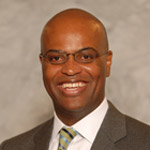Student loan troubles aren't exactly anything new, but the attention currently paid toward it certainly is. And rightly so. Even college graduates who do everything right and research their financial options before accepting a loan still find themselves crushed beneath mounting debt once the diploma ends up slapped into their hot little hands. Tired of the resultant fiscal strain, some of which comes at the hands of shadier profiteers, policymakers, activists, students, and families now demand some serious systemic reform. Recent legislation might very well start alleviating facets of the major issue, but other elements still need addressing. And the following individuals are some (but not all!) of the ones working to make that happen.
-
Barack Obama
 January of 2012 will bring major changes in how students deal with their ever-mounting debt, with consolidation probably ranking as the most significant game-changer. Sweeping together all owed money into one pile only means one check a month and lower interest. Borrower's loans are now capped at no more than 10% of disposable income, moved up from its original 2014 launch. Recent graduates still struggling to find career footing in a terrible economy will probably benefit the most from this legislation, although all taxpayers are eligible. Both of these offerings come courtesy of President Barack Obama's push toward student loan reform, though Congress obviously had a hand in helping him out.
January of 2012 will bring major changes in how students deal with their ever-mounting debt, with consolidation probably ranking as the most significant game-changer. Sweeping together all owed money into one pile only means one check a month and lower interest. Borrower's loans are now capped at no more than 10% of disposable income, moved up from its original 2014 launch. Recent graduates still struggling to find career footing in a terrible economy will probably benefit the most from this legislation, although all taxpayers are eligible. Both of these offerings come courtesy of President Barack Obama's push toward student loan reform, though Congress obviously had a hand in helping him out. -
Melody Barnes
 Melody Barnes serves as Obama's Domestic Policy Council Director and worked with him when reformatting the Federal Family Education Loan Program. She led the press briefing alerting the media and discussed their "Pay as you Earn" plan, which allows students to slash away at their debts with 10% of their discretionary income over the span of two decades. After that, the remainders will end up forgiven. Such legislation is meant to make finances a little easier for both low-income families and recent graduates new to the work force. More than 30,000 petitioners begged the White House to consider rethinking student loans, eventually encouraging the change from 15% over 25 years.
Melody Barnes serves as Obama's Domestic Policy Council Director and worked with him when reformatting the Federal Family Education Loan Program. She led the press briefing alerting the media and discussed their "Pay as you Earn" plan, which allows students to slash away at their debts with 10% of their discretionary income over the span of two decades. After that, the remainders will end up forgiven. Such legislation is meant to make finances a little easier for both low-income families and recent graduates new to the work force. More than 30,000 petitioners begged the White House to consider rethinking student loans, eventually encouraging the change from 15% over 25 years. -
Alan Collinge
 Considering he founded StudentLoanJustice.org and makes appearances in numerous media, it's safe to say that Alan Collinge probably ranks up there as a popular student loan reform activist. His grassroots organization, which calls the aforementioned website home, focuses particular ire on Sallie Mae and other businesses heavily profiting on those wanting to pursue higher education. In 2007, student loans totaled in the $80 billion range, the majority of them coming from state and private lenders. Collinge and his supporters want to see the processed streamlined, less stressful for the struggling, and generally less compelled by greed.
Considering he founded StudentLoanJustice.org and makes appearances in numerous media, it's safe to say that Alan Collinge probably ranks up there as a popular student loan reform activist. His grassroots organization, which calls the aforementioned website home, focuses particular ire on Sallie Mae and other businesses heavily profiting on those wanting to pursue higher education. In 2007, student loans totaled in the $80 billion range, the majority of them coming from state and private lenders. Collinge and his supporters want to see the processed streamlined, less stressful for the struggling, and generally less compelled by greed. -
Brian W. Jones
 Latimer Education Founder and President — not to mention the Chairman of the District of Columbia Public School Charter Board and a former General Counsel for the U.S. Department of Education — Brian W. Jones spent three years as the Executive Vice President and General Counsel of College Loan Corporation. During his stint, which ran from 2005 to 2008, he ensured that any students applying to the $10 billion private company fully understood the process and received a fair shake. 2006 saw the company honored with the Better Business Bureau's Torch Award, praising its "ethical business practices" in the service of college and university enrollees. The organization's efforts to transparently provide student loans without preying on those seeking their services serve as a great example for policymakers, activists, and (of course) other businesses involved in the reform process.
Latimer Education Founder and President — not to mention the Chairman of the District of Columbia Public School Charter Board and a former General Counsel for the U.S. Department of Education — Brian W. Jones spent three years as the Executive Vice President and General Counsel of College Loan Corporation. During his stint, which ran from 2005 to 2008, he ensured that any students applying to the $10 billion private company fully understood the process and received a fair shake. 2006 saw the company honored with the Better Business Bureau's Torch Award, praising its "ethical business practices" in the service of college and university enrollees. The organization's efforts to transparently provide student loans without preying on those seeking their services serve as a great example for policymakers, activists, and (of course) other businesses involved in the reform process. -
C. Cryn Johannsen
 All Education Matters speaks up for students drowning in debt, particularly those victimized by predatory lenders. Founder C. Cryn Johannsen and her board of nine directors aren't afraid to step up to political leaders and demand change. Check out the official blog (linked above) for updated resources on maneuvering the often frustrating stew of student aid, particularly what it means for long-term fiscal health. In addition, Johannsen comments on current events both good and bad impacting the student loan reform movement while simultaneously calling others to join her voice.
All Education Matters speaks up for students drowning in debt, particularly those victimized by predatory lenders. Founder C. Cryn Johannsen and her board of nine directors aren't afraid to step up to political leaders and demand change. Check out the official blog (linked above) for updated resources on maneuvering the often frustrating stew of student aid, particularly what it means for long-term fiscal health. In addition, Johannsen comments on current events both good and bad impacting the student loan reform movement while simultaneously calling others to join her voice. -
Robert Applebaum
 Like Alan Collinge, Robert Applebaum's student loan reform efforts take place largely online, encouraging supporters to band together on Facebook and his blog to talk strategies. Specifically, how forgiveness (it is in the site's title, after all) and consolidation will better stimulate today's horrific economic climate. This Staten Island-based attorney — who holds a political science degree — did everything he was supposed to do when paying off his student debts, yet still ended up with a $20,000 principal loan balance years later. Feeling cheated led him to seek out others thinking the system needs some serious overhaul, using social media as his chosen pulpit.
Like Alan Collinge, Robert Applebaum's student loan reform efforts take place largely online, encouraging supporters to band together on Facebook and his blog to talk strategies. Specifically, how forgiveness (it is in the site's title, after all) and consolidation will better stimulate today's horrific economic climate. This Staten Island-based attorney — who holds a political science degree — did everything he was supposed to do when paying off his student debts, yet still ended up with a $20,000 principal loan balance years later. Feeling cheated led him to seek out others thinking the system needs some serious overhaul, using social media as his chosen pulpit. -
Serge Bakalian and Aurora Meneghello
 Film aficionados interested in how movie-makers use their skills to lend their voices to the student loan reform debate should seek out the 27-minute documentary Default: The Student Loan Documentary. Producer/writer Serge Bakalian and director/writer Aurora Meneghello receive a plethora of praise for their research regarding how predatory lending and spiraling interest hurt graduates' financial futures. They encourage fellow activists to schedule screenings and promote initiatives meant to make paying off student loans as painless as possible — especially for those paying up to 25% interest!
Film aficionados interested in how movie-makers use their skills to lend their voices to the student loan reform debate should seek out the 27-minute documentary Default: The Student Loan Documentary. Producer/writer Serge Bakalian and director/writer Aurora Meneghello receive a plethora of praise for their research regarding how predatory lending and spiraling interest hurt graduates' financial futures. They encourage fellow activists to schedule screenings and promote initiatives meant to make paying off student loans as painless as possible — especially for those paying up to 25% interest! -
Kyle McCarthy
 Taking a cue from Default: The Student Loan Documentary, on which he worked as the Director of Community Outreach, Kyle McCarthy established Occupy Student Debt on the heels of the Occupy Wall Street movement. Its populist structure encourages anyone victimized by private corporations offering student loans a forum to vent about their experiences. And, of course, plea for reform and regulation of businesses such as Sallie Mae and other lenders accused of predatory practices. They hope to shift the blame for loan issues from the shoulders of the exploited and onto the politicians and organizations that allowed the serious issue to both happen and continue.
Taking a cue from Default: The Student Loan Documentary, on which he worked as the Director of Community Outreach, Kyle McCarthy established Occupy Student Debt on the heels of the Occupy Wall Street movement. Its populist structure encourages anyone victimized by private corporations offering student loans a forum to vent about their experiences. And, of course, plea for reform and regulation of businesses such as Sallie Mae and other lenders accused of predatory practices. They hope to shift the blame for loan issues from the shoulders of the exploited and onto the politicians and organizations that allowed the serious issue to both happen and continue. -
Lauren Asher
 Lauren Asher currently serves as the Institute for College Access & Success, which hosts the Project on Student Debt she co-founded in 2005. The initiative, backed by The BayTree Fund, The Bill and Melinda Gates Foundation, and Ford Foundation (among others), acts as a sort of think tank formulating strategies for addressing the problems swirling around student loans and the resulting debt. Their reach extends far beyond assisting graduates, however. Families of all economic backgrounds, colleges and universities themselves, and even private lenders receive attention when searching for answers benefiting everyone involved in the process.
Lauren Asher currently serves as the Institute for College Access & Success, which hosts the Project on Student Debt she co-founded in 2005. The initiative, backed by The BayTree Fund, The Bill and Melinda Gates Foundation, and Ford Foundation (among others), acts as a sort of think tank formulating strategies for addressing the problems swirling around student loans and the resulting debt. Their reach extends far beyond assisting graduates, however. Families of all economic backgrounds, colleges and universities themselves, and even private lenders receive attention when searching for answers benefiting everyone involved in the process. -
Isaac Bowers and Radhika Singh Miller
 Both of these reform supporters work with the nonprofit Equal Justice Works in the Educational Debt Relief and Outreach initiative, with the former acting as the Senior Program Director. Their organization focuses on assisting lawyers working in public interest to seek school debt relief through the right avenues. With resources for students, employers, and educators, they help demystify the process and encourage future generations of equal rights attorneys. They provide fellowships and other programs that anyone working towards reform might find rather interesting — if not inspiring. As one can probably imagine, they've commented on current policies before and believe more needs doing to assist vulnerable graduates and graduate students.
Both of these reform supporters work with the nonprofit Equal Justice Works in the Educational Debt Relief and Outreach initiative, with the former acting as the Senior Program Director. Their organization focuses on assisting lawyers working in public interest to seek school debt relief through the right avenues. With resources for students, employers, and educators, they help demystify the process and encourage future generations of equal rights attorneys. They provide fellowships and other programs that anyone working towards reform might find rather interesting — if not inspiring. As one can probably imagine, they've commented on current policies before and believe more needs doing to assist vulnerable graduates and graduate students.
No comments:
Post a Comment